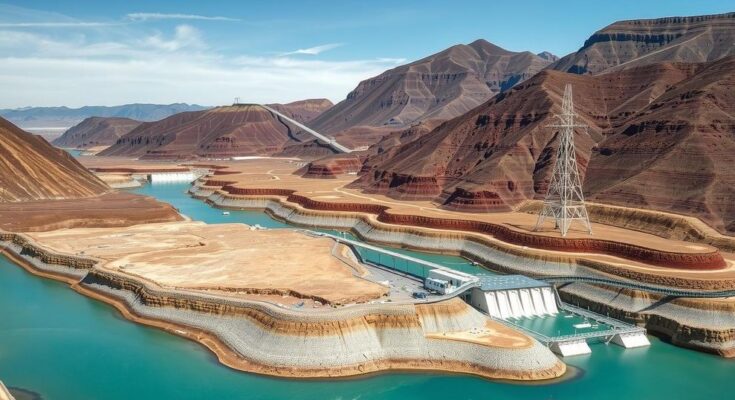Ecuador is grappling with a serious energy crisis due to a drought that has halted hydroelectric production, resulting in up to 14-hour daily blackouts. This situation disrupts essential services, businesses, and schools, costing the economy an estimated $12 million per hour. Experts warn that climate change will render hydropower increasingly unreliable, advocating for the exploration of alternative energy sources such as wind and solar.
Ecuador is facing a deepening energy crisis as a severe drought significantly hampers its ability to produce hydroelectric power. The nation, heavily reliant on this energy source, is experiencing daily blackouts that can last up to 14 hours. Consequently, essential services, businesses, and schools are facing substantial disruptions, leading to estimated financial losses of $12 million for every hour that the power is cut. Experts highlight that the country’s focus on hydroelectric energy leaves it exceedingly vulnerable to climate-related changes, urging action toward diversifying energy sources to include wind and solar.
The current crisis is a stark reminder of the challenges that nations dependent on hydroelectric power face amid increasing climate instability. The drought has drained rivers and reservoirs, undermining the hydroelectric power grid that is crucial for the country’s energy supply. The urgency for a shift in energy policy has never been more apparent, as climate change threatens the reliability of hydropower across the globe.
Ecuador’s energy infrastructure has long depended on hydroelectric power, which provides the majority of its electricity. However, as climate change intensifies, regions such as Ecuador are experiencing more extreme weather patterns, including prolonged periods of drought. This reliance on a singular energy source renders Ecuador particularly susceptible to environmental challenges. Consequently, the ongoing drought not only hampers energy production but also emphasizes a pressing need for energy diversification, ensuring that the country can sustain its economic and social frameworks in the face of climate vulnerabilities.
In conclusion, Ecuador’s ongoing energy crisis illustrates the inherent risks associated with an over-reliance on hydroelectric power, especially in the context of global climate change. The severe drought disrupting energy production serves as a critical wake-up call for Ecuador and similar nations to explore and implement diversified energy solutions. Without such measures, the socio-economic landscapes of these countries may continue to suffer from the consequences of climate-induced challenges.
Original Source: www.dailyclimate.org




